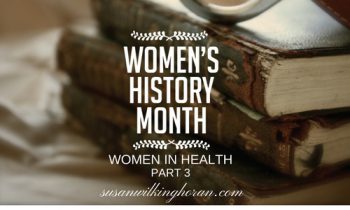 WOMEN IN HISTORY AND HEALTH
WOMEN IN HISTORY AND HEALTH
Welcome Back Everyone ~ We’re continuing with our Four-Part Series on WOMEN’S HISTORY MONTH, and today we’re profiling three more women in the fields of Science and Medicine – Women whose contributions and dedication changed the way Healthcare is practiced in and delivered to the world today. I’m happy to present this week’s HEROINES OF HEALTHCARE – Enjoy and be Inspired!
ELIZABETH BLACKWELL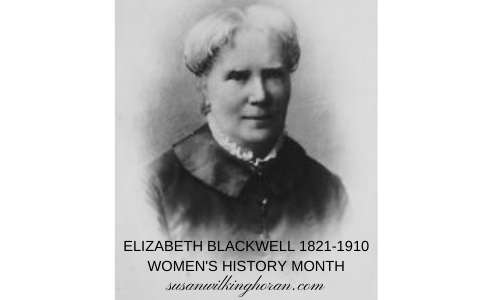
Born in England in 1821, Elizabeth Blackwell moved with her family to the United States at an early age. She began her professional career as a teacher. But when a life-long friend of Elizabeth’s became terminally ill and told Elizabeth there was no female doctor in whom she could confide, Elizabeth decided to fill the void.
The road to becoming a doctor for a woman in the 1800s was not an easy one. Elizabeth joined a handful of other women and studied independently with local doctors until she was finally accepted in 1847 to the Geneva Medical College in upstate New York.
As the only female student, however, her acceptance caused uproar in the community, which did not believe women were qualified to receive a formal education in medicine. Nor was she well received by her fellow students who considered her acceptance an administrative practical joke.
In spite of being ostracized by educators, patients and students alike, Elizabeth wrote her Doctoral Thesis on typhus fever and graduated first in her class in 1849 – becoming the first woman medical doctor in America.
A champion of women, Elizabeth opened the New York Dispensary for Poor Women and Children in 1855, the New York Infirmary for Indigent Women and Children in 1857 and helped establish the U.S. Sanitary Commission under the auspices of President Abraham Lincoln in 1861. THANK YOU, ELIZABETH BLACKWELL!
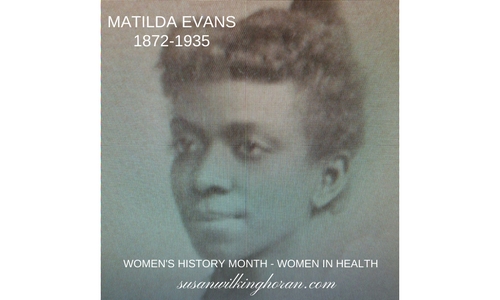 MATILDA EVANS
MATILDA EVANS
Born in 1872 in Aiken, South Carolina, Matilda Evans spent most of her early years working the rural fields of the South with her family. It was not until her chance meeting with Martha Shoefield, a well-known Quaker woman in the Caucasian community, that Matilda decided to seek an education.
Impressed with Matilda’s extraordinary intelligence and drive, Martha helped raised the money to send Matilda to Ohio to attend Oberlin College and then to the Woman’s Medical College in Philadelphia in 1893. Upon graduation, Matilda returned to her home state becoming the first African American woman to receive a license and practice medicine in South Carolina.
Dedicated to improving the lives of women and children in the rural South Matilda specialized in obstetrics, gynecology, pediatrics and hygiene. She cared for her patients in her home, until she established Taylor Lane Hospital in 1901 – the first black-owned hospital in Columbia, South Carolina.
Creating a practice that crossed all racial barriers of the time, Matilda used the funds she received from wealthy white patients to provide free and subsidized care for her needy black patients, especially women and children. Matilda believed healthcare – like education – should be a right of citizenship and petitioned the state of South Carolina to provide free vaccines for all underprivileged children.
Matilda began the Negro Health Association of South Carolina in 1918, volunteered in the U.S. Army Medical Corps during World War I and was the only African American woman in the country to serve as the President of a State Medical Association. THANK YOU, MATILDA EVANS!
HELEN MAYO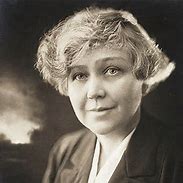
A revolutionary woman from “down under,” Helen Mayo was born in Australia in 1878. The eldest of seven children, Helen studied physics from an early age and entered the University of Adelaide in 1896. After first enrolling in the Arts, Helen decided to become a doctor and by 1902 she became the University’s second woman to earn a Degree in Medicine.
Concerned with the lives of impoverished women and their children, Helen entered private practice combining midwifery and internal medicine for those women and children. She lectured on pediatric diseases during World War I, became the senior pediatric advisor for Children’s Hospital in Adelaide and organized the Red Cross donor transfusion service and instructional infant feeding program during World War II.
Helen’s research on infant mortality advocated pre-natal and post-natal education for all women regardless of economic circumstances. To this end, she began a small clinic, which later became the celebrated Mothers and Babies Health Association and she traveled the world to implement new methods of infant feeding procedures to prevent cross-infection and contamination – forming the foundation for modern pediatrics.
Helen also supported the Kindergarten Movement, which became the model for children’s education today – and her devotion to issues of birth control, gynecology and children’s welfare services over four decades helped lower the infant mortality rate in South Australia by 60 percent. Her work set the example for every other healthcare system in the western world. THANK YOU, HELEN MAYO!
____________________________________________________________________________________________________________________________________
And once again, THANK YOU everyone for joining me! I love profiling these incredible women and sharing their accomplishments with you. Like me, I hope you find encouragement, hope and inspiration in the stories of these HEROINES OF HEALTHCARE.
Next week will be our final installment of our Four-Part Series. So, please join me again and until then, stay in GOOD HEALTH and . . .
TAKE THE COURSE AND TAKE CHARGE!

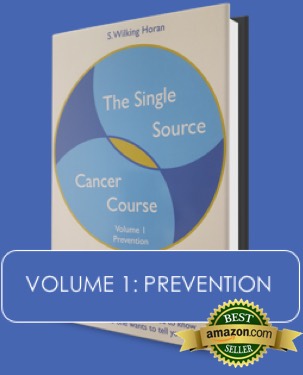
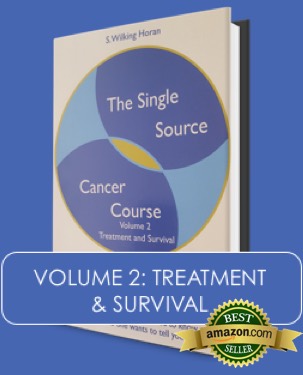
Leave a Comment